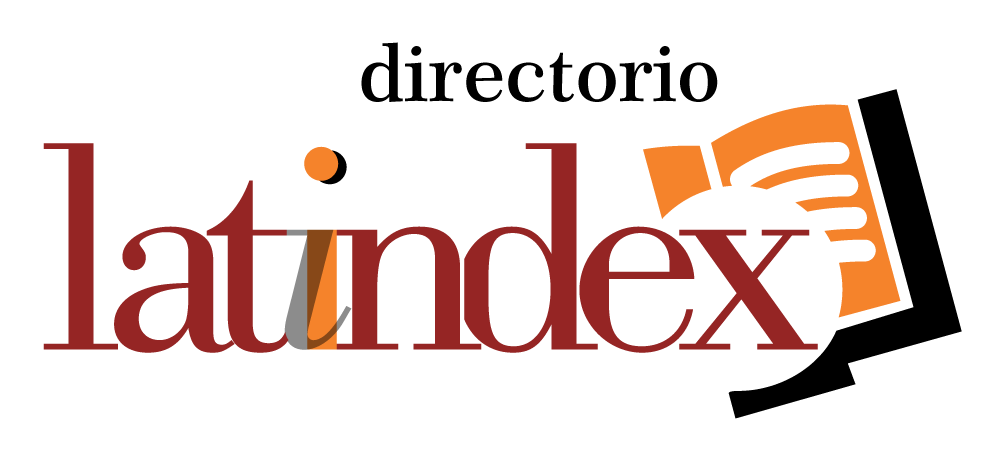Impact of Artificial Intelligence on Journalism Training
DOI:
https://doi.org/10.56294/ai2024100Keywords:
artificial intelligence, digital journalism, technological dependency, academic training, professional ethicsAbstract
This research addressed how the use of artificial intelligence influenced the academic training of journalism students at the Faculty of Social Communication (FACSO) of the University of Guayaquil. It was observed that, although these tools offered benefits such as task automation, data analysis, and content generation, they also created a growing technological dependency. This dependence compromised the development of fundamental journalism skills, such as critical writing, source verification, and analytical judgement. From a theoretical perspective, models such as social communication theory, professional ethics, and the social construction of technology were used to understand the relationship between the student, the technological tool, and the academic environment. Furthermore, it became clear that the implementation of AI required a review of educational methods in order to balance the use of technology with the development of human and ethical skills. Methodologically, the study combined quantitative and qualitative approaches, using surveys and interviews to collect data on the use, perception and learning of these technologies. Finally, it was concluded that AI should not replace critical thinking or journalistic creativity, but rather be integrated ethically and equitably as a complement to the educational process, thus promoting job preparation adapted to the demands of the digital environment.
References
1. Álvaro, M., & Alba, C. (2020). Características y competencias de la enseñanza del periodismo digital en el grado de Periodismo en las universidades públicas españolas. http://www.scielo.edu.uy/scielo.php?script=sci_arttext&pid=S0797-36912020000200061
2. Arispe, C., Yangali, J., Guerrero, M., Lozada, O., Acuña, L., & Arellano, C. (2020). La investigación científica. https://repositorio.uide.edu.ec/bitstream/37000/4310/1/LA%20INVESTIGACI%C3%93 N%20CIENT%C3%8DFICA.pdf
3. Blanco, B. (2020). Los fundamentos de la ética: Aristóteles. https://www.nuevarevista.net/los- fundamentos-de-la-etica-aristoteles/
4. Caballero, E. (2020). Jürgen Habermas y su teoria de la accion comunicacional. https://eduardocaballeroardila.wordpress.com/wp-content/uploads/2020/04/jc3bcrgen- habermas-y-su-teorc3ada-de-la-accic3b3n-comunicacional-.pdf
5. Calle, S. (2023). Diseños de investigación cualitativa y cuantitativa. https://ciencialatina.org/index.php/cienciala/article/view/7016/10657 DOI: https://doi.org/10.37811/cl_rcm.v7i4.7016
6. Calvo, D., López, G., & Aguar, J. (2024). Periodismo digital. https://espejodemonografias.comunicacionsocial.es/article/view/7185/7787
7. Carvajal, A., Benítez, K., & Tusa, F. (2023). Comunicación: Un enfoque desde la academia. https://repositorio.utmachala.edu.ec/bitstream/48000/22443/3/Periodismo%20digital%20local%20postpandemia%20%282%29.pdf
8. Cavalli, A., & Carrozza, T. (2019). Dicotomía Naturaleza – Tecnología: diálogo entre el Constructivismo Social de la Tecnología y la Ecología Política Latinoamericana. https://www.researchgate.net/publication/333636062_Dicotomia_Naturaleza_-_Tecnologia_dialogo_entre_el_Constructivismo_Social_de_la_Tecnologia_y_la_Ecologia_Politica_Latinoamericana DOI: https://doi.org/10.15210/norus.v6i10.15783
9. García, F. (2024). El Uso de la Inteligencia Artificial en la Producción de Contenidos por Estudiantes de Comunicación: Desafíos y Oportunidades. https://revista.consejodecomunicacion.gob.ec/index.php/rec/article/view/208/679
10. Gómez, G. (2022). Perspectivas para abordar la inteligencia artificial en la enseñanza de periodismo. Una revisión de experiencias investigadoras y docentes. https://nuevaepoca.revistalatinacs.org/index.php/revista/article/view/1682/3582
11. Guerrero Troya, N. M. (2024). La inteligencia artificial en el periodismo de Cotopaxi. https://revista.consejodecomunicacion.gob.ec/index.php/rec/article/view/191/683
12. Jongitud, J. (2021). Teorías éticas contemporáneas. http://www.rtfd.es/numero5/3-5.pdf
13. Ley Orgánica de Comunicación. (2020). Ley Orgánica de Comunicación. https://www.telecomunicaciones.gob.ec/wp-content/uploads/2020/01/Ley-Organica-de-Comunicaci%C3%B3n.pdf
14. Ley Orgánica de Protección de Datos Personales. (2021). Ley Orgánica de Protección de Datos Personales. https://www.finanzaspopulares.gob.ec/wp-content/uploads/2021/07/ley_organica_de_proteccion_de_datos_personales.pdf
15. López, P., Martínez, P., & Oñate, P. (2020). Agenda melding y teorías de la comunicación: la construcción de la imagen de los actores políticos en las redes sociales. file:///C:/Users/Usuario/Downloads/Dialnet-AgendaMeldingYTeoriasDeLaComunicacion-8288525.pdf DOI: https://doi.org/10.18682/cdc.vi112.4089
16. Lopezosa, C., Sorribes, C., Codina, L., & Vállez, M. (2023). Uso de la inteligencia artificial generativa en la formación de los periodistas: desafíos, usos y propuesta formativa. https://revista.profesionaldelainformacion.com/index.php/EPI/article/view/87356/63452
17. Mateos, J., & Arroyo, R. (2024). Metodologías de investigación y usos de la inteligencia artificial aplicadaal periodismo. http://www.comunicacionymetodos.com/index.php/cym/article/view/220/159
18. Mollán, A. (2019). Capítulo III. Pensamiento pedagógico de Spencer Durkheim. https://1library.co/article/pensamiento-pedag%C3%B3gico-de-herbert-spencer.y8gl9855
19. Mucha, A. (2022). Teoría de la educación. https://www.researchgate.net/publication/361292328_TEORIA_DE_LA_EDUCACION
20. Ramos, C. (2020). Los alcances de una investigación. https://cienciamerica.edu.ec/index.php/uti/article/view/336/621
21. Toscano, J., Loza, E., & Franco, A. (2023). La transformación digital en el turismo: un modelo desde la construcción social de la tecnología (SCOT). https://revistas.pucp.edu.pe/index.php/360gestion/article/view/27190/25898 DOI: https://doi.org/10.18800/360gestion.202308.006
22. Vállez, M., & Codina, L. (2019). Periodismo computacional: Evolución, Casos y Herramientas. https://revista.profesionaldelainformacion.com/index.php/EPI/article/view/epi.2018.jul.05/40575 DOI: https://doi.org/10.3145/epi.2018.jul.05
23. Vizcaíno, P., Maldonado, I., & Cedeño, R. (2023). Metodología de la investigación científica: guía practica. https://ciencialatina.org/index.php/cienciala/article/view/7658/11619.
Published
Issue
Section
License
Copyright (c) 2024 Hermin Samuel Vera Candelario, Héctor Córdova (Author)

This work is licensed under a Creative Commons Attribution 4.0 International License.
The article is distributed under the Creative Commons Attribution 4.0 License. Unless otherwise stated, associated published material is distributed under the same licence.






